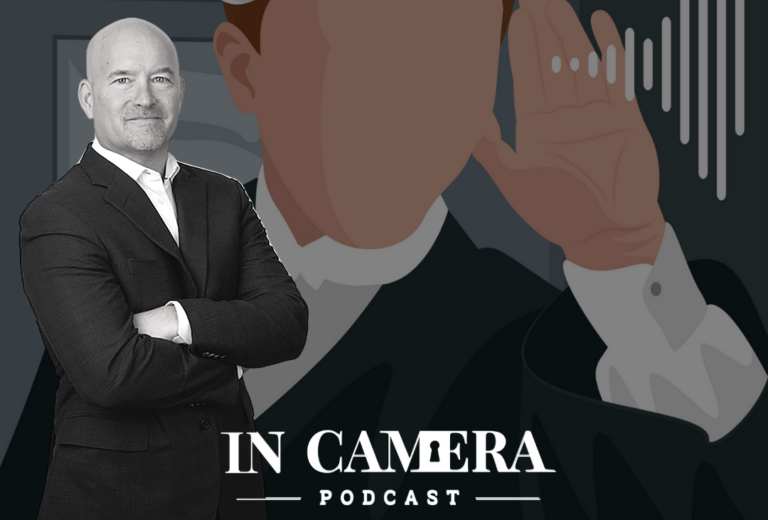Is There A Statute Of Limitations on A Wrongful Death Suit?

Losing a loved one because of someone else’s negligence is a devastating experience. If you and your family have suffered such a loss, you don’t have to navigate the road ahead alone. An experienced wrongful death lawyer can help you fight for the justice you and your loved ones deserve. At the Law Office of Bachus & Schanker, our team understands how valuable it is to have a legal representative on your side fighting for your rights when you need support the most.
Legal representation is not the only source of support you can tap into. Utilizing other resources like the book Unthinkable can be a helpful way to understand your options as you move through the legal process. After navigating his own family’s tragedy following his mother’s catastrophic injury, Kyle Bachus has made it his mission to educate and advocate for the families of victims of catastrophic injury and wrongful death. Resources like this comprehensive book offer invaluable insight into navigating the difficult road ahead, seeking justice, and holding negligent parties accountable.
If you have lost a loved one because of someone else’s negligence, contact our wrongful death lawyers today and learn how you can recover the compensation and justice you and your family deserve.
What qualifies as a wrongful death?
A wrongful death occurs when an individual has died at the hands of a negligent party. The party can be an individual, an employer, a business, or any other entity. For a wrongful death to have occurred, negligence must have been present and resulted in the death of the individual. Wrongful death can occur by intentional, negligent, or reckless behavior. Common situations include:
- Car accidents caused by a drunk driver
- Medical malpractice that leads to an individual’s death
- Defective products
- Workplace accidents
- Accidents in places of business
What is a statute of limitations?
A statute of limitations is a legal time limit available to a person who wishes to file a lawsuit. Statutes of limitations apply to a variety of civil and criminal charges including wrongful death claims, personal injuries, and other civil complaints. The purpose of a statute of limitations is to promote the timely resolution of legal disputes and to allow swift and justifiable resolution of a civil violation.
According to Colorado’s Wrongful Death Statute, following an individual’s death, a plaintiff has two years to bring forward a wrongful death lawsuit. In the first year after the wrongful death, only the spouse or surviving children of the decedent can bring forward a claim. If there is no spouse or surviving children, a parent can bring forward a claim. In the second year after an individual dies, their surviving children, parents, named beneficiaries, or other heirs can also bring forward a claim or join in on an existing one.
What is the reasoning behind statutes of limitations in wrongful death claims?
Statutes of limitations serve important purposes in the legal system. They encourage plaintiffs to bring their claims in a timely manner so that cases are resolved while evidence is still fresh, witnesses’ memories are still intact, and the collection and documentation of evidence is still possible.
Statutes of limitations protect defendants from being subjected to potentially baseless claims after a significant amount of time has passed. Without these statutes, those who were not involved in a wrongful death may be forced to defend themselves during a time when the collection of evidence might not be possible. Overall, the wrongful death statute of limitations aims to help in the following manner:
- Resolve the wrongful death in a timely manner
- Hold negligent and responsible parties accountable in a timely manner
- Allow for an accurate and thorough collection of evidence
- Help victims’ families begin the healing process
- Allow families to collect compensation for their loved ones passing to help pay medical expenses, funeral expenses, and other bills that have accrued because of the death
You can learn more about the statute of limitations and view wrongful death statute of limitation laws in your state.
Who can bring a wrongful death lawsuit?
In most jurisdictions, the right to bring a wrongful death lawsuit is limited to specific individuals. In Colorado, the statute of limitations influences who can bring forward a wrongful death lawsuit. In the first year, only a spouse can bring forward a wrongful death lawsuit. If there is no spouse, then a child can bring forward a claim. In the second year following the individual’s death, parents, children, and other heirs or named beneficiaries can file a lawsuit. Siblings cannot bring forward a wrongful death lawsuit, even if they are the only surviving relative of the decedent.
What damages are available in a wrongful death case?
Damages in wrongful death cases are intended to compensate the surviving family members for the losses they have suffered as a result of their loved one’s death. Wrongful death damages are broad and may include a variety of compensation, including economic and non-economic damages.
Economic damages are designed to compensate a family in a manner that restores them to their financial standing when their loved one was still alive. Because of this, there are no caps on economic damages. Economic damages can include the following:
- Loss of income and wages
- Hospital bills, treatment costs, and other medical expenses
- Funeral and burial costs
Non-economic damages are designed to compensate for intangible losses sustained because of the death of a loved one. These types of damages can be difficult to calculate but typically include losses such as the following:
- Pain and suffering
- Mental anguish
- Loss of consortium
In the state of Colorado, non-economic damages are capped at $250,000 plus inflation. In cases where there is clear and convincing evidence that more is warranted, damages can be capped at $500,000 plus inflation.
In unique cases, a plaintiff may also be awarded punitive damages. These damages serve to hold a defendant responsible for their negligence as a form of punishment and deterrent to keep similar behavior from occurring in the future.
Are there any exceptions to the statute of limitations on a wrongful death suit?
While statutes of limitations generally establish strict deadlines for filing a wrongful death lawsuit, some exceptions may extend or modify the time limit.
Although rare, these exceptions allow a wrongful death lawsuit to be brought forward beyond the statute of limitations. Common reasons why this might occur can include the following:
- Cases of medical malpractice
- Hit and run accidents
- Instances where a defendant intentionally concealed information to thwart the investigation
- Cases where the discovery rule applies. The discovery rule allows the statute of limitations to start from the date a plaintiff is able to determine the death of their loved one was the result of a defendant’s negligence.
There may be other instances where an exception to the statute of limitations may be made. Discussing your options with an experienced wrongful death attorney will help you better understand whether an exception can be made in your case.
Statute of limitations for wrongful death claim vs. survival action
It is essential to differentiate between a wrongful death claim and a survival action when considering the statute of limitations.
A wrongful death claim is filed on behalf of the surviving family members to compensate for their losses resulting from the death. These losses are compensated in the form of economic and non-economic damages.
A survival action is brought by the estate of the deceased person to seek compensation for the losses suffered by the deceased person before their death. Because a survival action is brought on behalf of the decedent, it can seek economic damages including medical expenses, the decedent’s pain and suffering, costs to repair or replace property, and other losses.
Under certain conditions, you may be able to file both a wrongful death lawsuit and a survival action claim. To do so, you’ll need to meet the following requirements:
- Be a qualified family member
- Be a decedent’s personal representative (applicable to survival action claims)
- Meet the statute of limitations
Discuss your options with a wrongful death lawsuit and learn more about your options regarding a wrongful death lawsuit and survival action claims.
See how a wrongful death lawyer can help you seek justice

An experienced wrongful death attorney can help you seek the justice, accountability, and compensation you deserve. When you work with our Elite Litigation Group. you’ll have access to a highly skilled team of wrongful death and catastrophic injury attorneys. This team will help guide you through your legal rights and options and work to build a strong case on your behalf.
Our clients can also tap into the resources of our Victim Advocates Team. A highly specialized group of professionals, the Victim Advocates Team is committed to connecting our clients to invaluable community resources that will help them navigate difficulties following the wrongful death of their loved one.
At Bachus & Schanker, we are committed to fighting for your rights and will be with you every step of the way as you navigate the complexities associated with a wrongful death lawsuit.
Contact our wrongful death lawyers today to learn more about your rights and options.
Sources:
Census of Fatal Occupational Injuries Summary. (2022).
Economic damages. (2022).
Non-economic damages. (2022).





